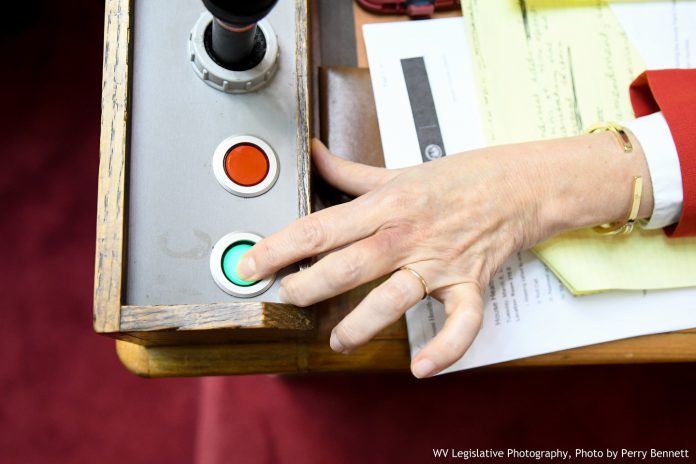As of 4 p.m., Thursday, February 27, 2014, the 51st day of the 2nd session of the 81st Legislature, 1239 bills have been introduced in the House. Of those, 148 have passed and have been sent to the Senate for further consideration. Among those:
House Bill 2446 would make it a crime for someone over the age of 18 to solicit a minor at least four years younger than that person with the intent to persuade, lure, entice, solicit or seduce the minor to commit any illegal act. If a parent, guardian, or custodian of the minor is convicted, he or she would be required to register as an abusing parent. If found guilty, the person would face a maximum fine of $10,000 and two to 15 years in prison. The second offense would result in imprisonment for up to 20 years and a maximum fine of $25,000, or both.
House Bill 2981 would clarify that historical reenactors are not participating in unlawful military organizations.
House Bill 4141 would make it unlawful to sell or offer drug paraphernalia. This primarily deals with items intended for use in ingesting, inhaling, or introducing controlled substances into the human body.
House Bill 4186 would require materials, supplies and equipment purchased by the state and its agencies to be made in the United States. Buying foreign goods would only be authorized when they are necessary for protection and safety and have no comparable American-made products, there is not enough quantity of the product produced in the United States or the American-made item exceeds the cost of a foreign-made item by more than 10 percent.
House Bill 4210 would remove life sentences without parole as possible conviction sentences for first degree murder and kidnaping committed by a juvenile. A life sentence would still be a possibility, but a sentence of at least 15 years would be added as a possibility as well. Parole would be an option after at least 15 years of incarceration.
House Bill 4221 would permit teachers under the State Teachers Retirement System to teach college level courses without losing benefits.
House Bill 4304 would provide rules for motor vehicles passing bicycles on roadways. Vehicles would have to pass to the left of the bicycle at a distance of at least three feet and not move right again until they are safely clear of the bicycle. If the bicycle is going less than the speed limit, the rider would be required to ride in the bicycle lane, or at the right-hand curb or edge of roadway.
House Bill 4316 would create the Student Data Accessibility, Transparency and Accountability Act. The act would require the Department of Education to make an inventory and index of all elements in the statewide data system publicly available. A data security plan would be required, with a data governance officer ensuring compliance.
House Bill 4327 would create a felony offense for health care practitioners who to prescribe, dispense, administer, mix or prepare a drug for means other than in a good faith, therapeutic manner in accordance with accepted medical standards.
House Bill 4335 would allow a mother to breast feed a child in any public or private location the mother and child are authorized to be. The mother would use discretion while breast feeding in public.
House Bill 4354 would require the reporting of all compensation, including contingent compensation for lobbying, paid to a lobbyist. This information would be required to be reported by the Ethics Commission.
House Bill 4360 would prevent debt collectors from using unfair or unconscionable means to attempt to collect from a consumer when the statute of limitations has expired, the debt is no longer owned by the original oblige or successor by a merger or acquisition, the debt has been sold or transferred to a debt collector, or the debtor has made no payment for at least 10 years.
House Bill 4490 would establish conflict of interest guidelines and financial accountability for the Attorney General. It would require the Attorney General to report to the Governor and the Joint Committee on Government & Finance on legal service contracts. These contracts would then be approved by the Secretary of State. This bill includes requirements for how attorney fees and expenses are dispersed.

